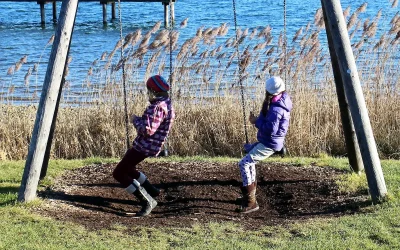“There is no one absolute or sure-fire action plan that will suit or appeal to every parent or child. Learn all you can about how to develop a strong foundation that will support your child’s growth and well-being.”
~ ABCs of Raising Smarter Kids, p. 9
Here is an “A-list” of questions for parents who want to discern essential aspects of an optimal classroom environment. These are arranged rather randomly—not by priority—because every family has its own set of priorities. Each point gives rise to considerations that would benefit children in classroom settings, but the matters are also applicable to other learning environments, such as at home, within the community, or beyond. Learning can transpire anywhere—and at any time of year!
TIP: Think about YES/NO responses first, and then consider HOW!?!?
1. Achievement:
Are children’s accomplishments acknowledged and celebrated? (The small ones as well as larger ones…) Are expectations realistic and manageable?
2. Accountability:
Are children given responsibility to choose or co-create their learning opportunities—and then to engage meaningfully with them?
3. Activities:
Are learning experiences appropriately challenging, stimulating, and pleasurable?
4. Adaptations:
Are kids taught about flexibility—so they learn to manage changes, setbacks, challenging circumstances, and various situations that might arise?
5. Attitude:
Do teachers model creativity and a love of learning?
6. Authenticity:
Are children encouraged to find and develop their sense of self, their own interests, and their inquiry skills, learning preferences, and ways of being?
7. Administrative support:
Do school administrators facilitate strong service provisions for and within classrooms? (For example, provisions relating to safety, professional development offerings, resources, and open communication channels with communities, consultative services, and other supports.)
8. Augmentation:
Are children encouraged to build upon their strengths, and also bolster their areas of weakness?
9. Autonomy:
Do teachers respect and foster each child’s independence?
What Matters Most for Children’s Learning and Development?
“An effective action plan demands thoughtful decision-making and collaborative effort on the part of many people—parents, teachers, administrators, consultants, and, of course, the child… And, taking action might mean that things need to be adjusted a little, or possibly even shaken up a lot, at any point, or over time.”
~ ABCs of Raising Smarter Kids, p. 3
All nine questions on the above-noted “A-list” are extremely important when it comes to figuring out a child’s specific needs, and then addressing them thoughtfully. A culminating 10th point is Action!
Children benefit from having a range of different opportunities—such as motor, interactive, sensory, inventive, and listening, across domains—including having experiences that embrace reading, music, art, drama, physical activities, and creative expression. Kids need time to share, to connect with others, and to play, in safe, welcoming, and comfortable learning environments.
The considerations above can help fortify children’s advancement and overall well-being all year long!
Authors Note:
Material adapted from content from within ABCs of Raising Smarter Kids by Joanne Foster, and Beyond Intelligence: Secrets for Raising Happily Productive Kids (co-authored by Dona Matthews).








